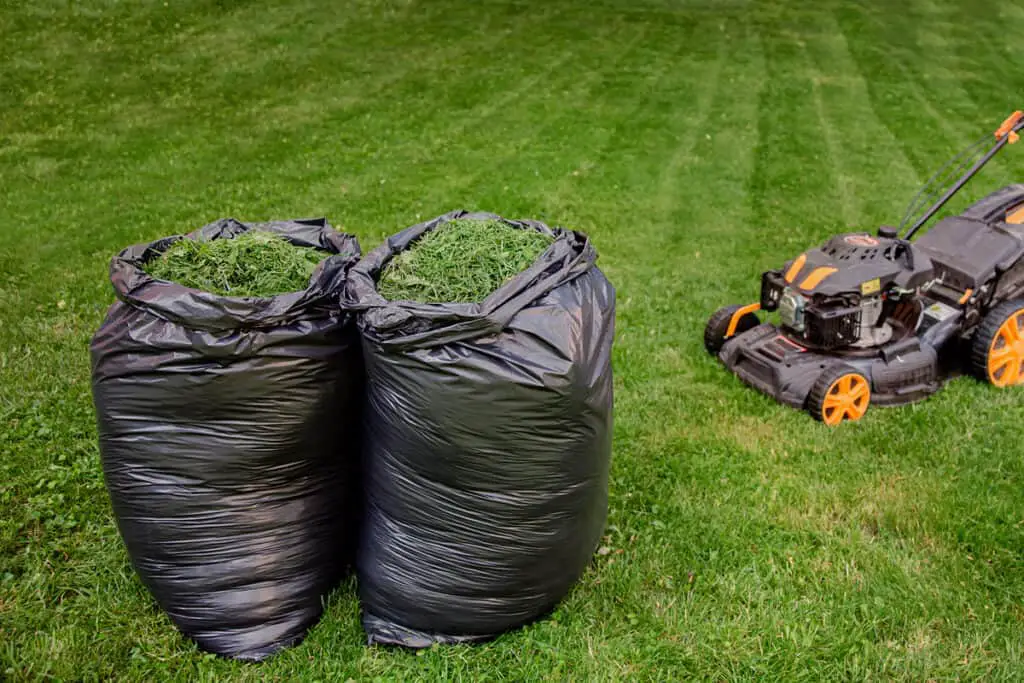While we all love the convenience of kerbside rubbish collection, not everything is yet able to be disposed of that way. Batteries, light bulbs and flat glass (as opposed to bottles and jars) are not widely accepted in routine collections.
Contents
The Rules On Lawn Clippings In General Waste
Grass should be placed into your garden waste recycling bin if you have one. If not, take it to your local tip where it goes into the garden waste skip. While grass may be accepted by some councils in general waste, it is a poor choice for the environment.

There is no law preventing grass from going into your general waste bins, but we should all be trying to do our bit to be greener. That means re-using what we can and recycling as much as possible that’s left.
It is not illegal to put lawn clippings into your general waste bin, but there are better options. Green waste collections mean that grass can be used for compost, and if that isn’t available in your area, council run recycling centres offer the service.
Grass Collected From Green Waste Recycling Services
Most councils offer green waste collections, usually allowing grass, hedge cuttings and flowers. The regular collections are taken to composting sites where they are processed.
Initially, the collections are checked for anything that shouldn’t have gone into the bin. This generally includes stones, excess soil and rubble.
What’s left should then be suitable for the composting process. Just like a home compost heap or bin, the process relies on heat to allow the materials to break down. Microbes need the warmth to eat away and break down the green waste into nutrient rich compost.
As the council services collect so much grass and other plant based waste, they have facilities designed to accelerate to composting process, mainly due to generating more heat. This means that the compost is available to use in a matter of a few weeks.
Because the source materials can vary from fine grass clippings to branches, the compost will usually be sifted to assess quality, and anything that’s left can go through the process again.
Using Clippings Around Trees
It’s common for people to scatter grass clippings in their gardens to return nutrients to the soil and encourage future healthy growth of plants, trees and even lawns. You’ll hear the term mulch used to describe the process of the clippings breaking down.
Placing grass clippings around trees in not advisable as it often creates a damp and slimy mulch. This can damage the tree and eventually promote rotting. It’s therefore not advisable immediately next to the trunk, but a few feet away should be enough to allow the nutrients to seep into the soil and become available to roots.
Will Clippings Kill Trees?
Through the process of mulching, grass clippings break down and provide nitrogen and potassium back to the soil, both of which can benefit tree growth. However, rotting grass can create a lot of moisture, and extended periods of dampness on the bark at the base of tree trunks can eventually cause trees to become damaged.
Grass clippings do not kill trees in isolation, but the process of breaking them down to get nutrients into the soil can cause tree bark to remain wet for excessive periods. Try to leave a space of a few feet from the tree trunk to mulch to allow the tree to dry in warmer weather and reduce the risk of harm to the tree.
Alternative Uses For Grass Clippings
Compost bins are a great option for homeowners with gardens. If you’ve got a garden big enough for a lawn to mow, you’ve got space for a compost bin. They’re a great way to deal with waste clippings, and provide you with a natural fertiliser for use in the garden.
A great alternative to a green waste collection for grass clippings is a compost bin in your garden. In addition to cuttings from the lawn, you can also compost some food waste to prevent it going for incineration or worse, to landfill.
Compost bins also allow you to reduce the methane emissions associated with food waste in landfill. Waste like egg shells and coffee grounds are nutrient rich and great to break down with your grass clippings, while other green waste like garden weeds can go into the compost bin too.
